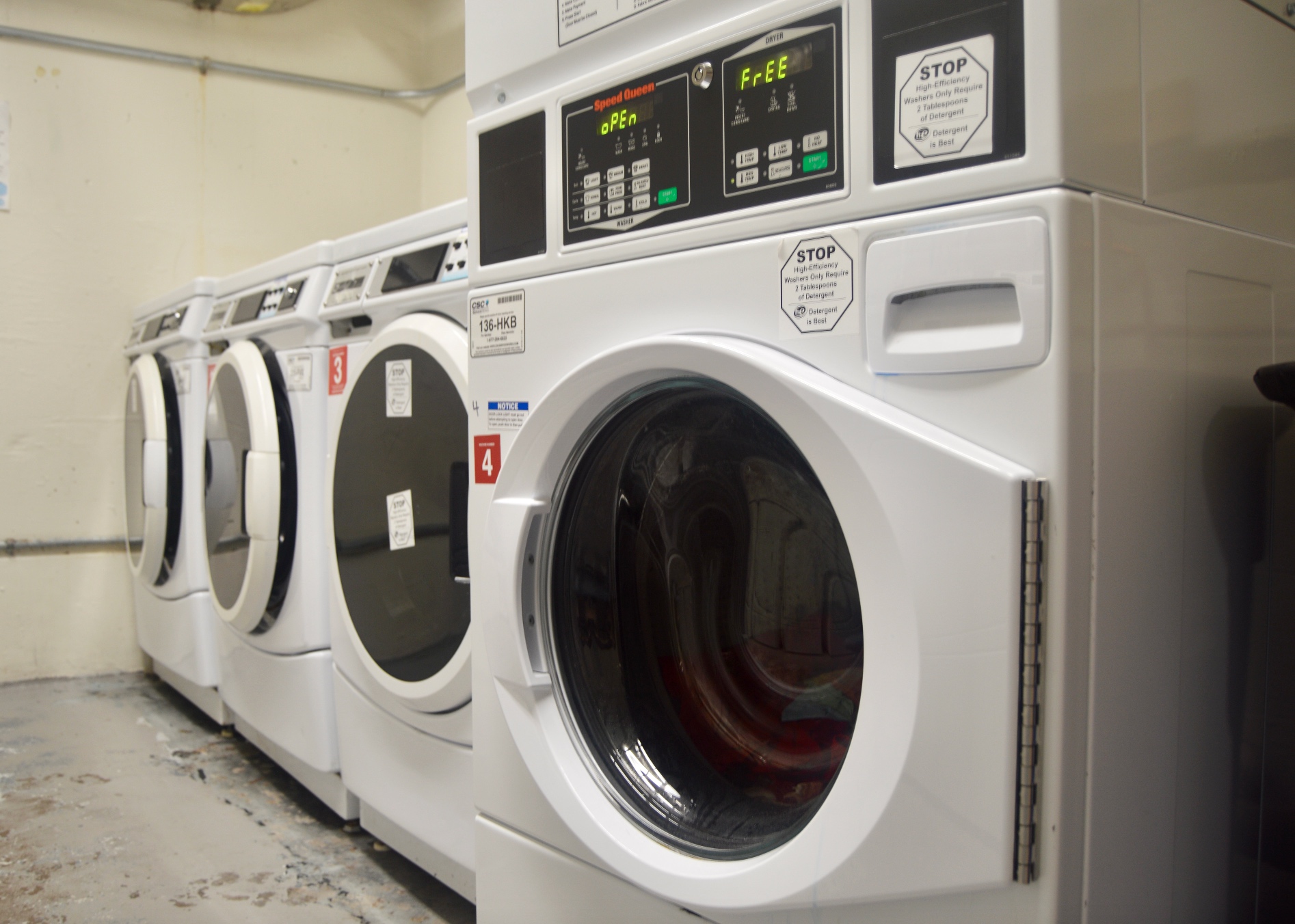
c/o Alexandra Turtil, Assistant Photo Editor
Beginning this semester, the University will no longer require students to pay for laundry. The Included Use laundry program allows the University to absorb laundry fees into its existing budgets instead of building additional fees into the Residential Comprehensive Fee (RCF). This program is the result of discussions between the Wesleyan Student Assembly (WSA) and the Finance Office over the past few years.
Huzaifa Khan ’22 began the campaign for free laundry when he was a WSA senator in the spring of 2019.
“The initial outline we had envisioned was that the funds for laundry would be charged in the RCF,” Khan explained. “Financial aid would cover it for students who had the need, so students on financial aid would have it covered either in half or full depending on their need status.”
Khan proposed the idea to then-Director of Residential Life Fran Koerting, Senior Vice President and Chief Administrative Officer and Treasurer Andy Tanaka ’00, and Associate Vice President for Finance Chris Olt.
“We investigated the program with our laundry vendor and identified several institutions that have implemented similar initiatives over the last several years,” Olt wrote in an email to The Argus. “We found that other schools had a positive experience with the program. In addition to providing better support for students with financial need, we hope that eliminating the ‘pay-per-use’ model will shift the laundry habits of students.”
Although the original aim of the proposal was to provide better support for students with financial need, students and administrators were also mindful of the environmental impact of laundry on campus. As Khan explained, the pay-per-use model incentivized improper machine usage.
“People were overloading the machine to get the most out of their buck and they were actually breaking the machines,” Khan said.
Olt hopes that the Included Use Program will prompt students to use laundry machines more responsibly.
“The other institutions using this laundry model found that instead of washing machines being overloaded with laundry or soap, the levels tend to be more appropriate, allowing the machines to use less water and take less time to complete a cycle,” Olt wrote. “We expect that this laundry model will better support students, improve the efficiency of the washers and dryers, reduce water consumption, and reduce wear and tear on the machines.”
Khan emphasized that while sustainability is a commendable outcome, the real impact will be felt by members of the student body who face financial barriers to laundry access.
“Laundry was a regressive tax of sorts on the poor students here, so I’m very glad that this has been solved,” Khan said.
Kiran Kling can be reached kkling@wesleyan.edu.
Hannah Docter-Loeb can be reached at hdocterloeb@wesleyan.edu.
Comments are closed